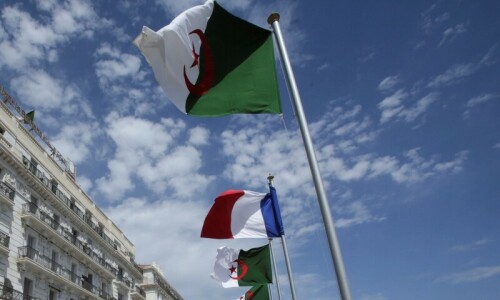BONN: Fiji plans to move more than 40 villages to higher ground to escape coastal floods and is also working on ways to help future migrants from other Pacific island nations as sea levels rise, Fiji’s attorney general said.
Fiji, presiding at negotiations among 200 nations in Germany on ways to strengthen action to curb climate change that is melting ice from the Alps to the Andes, is working to resolve issues such as land rights and citizenship.
“We have had to relocate people to higher ground — we have moved three villages to higher ground and there are another 43 that are earmarked,” Aiyaz Sayed-Khaiyum said during the two-week talks that ended on Friday.
Global talks on curbing climate change wrapped up on Friday, with delegates and observers claiming progress on several key details of the 2015 Paris accord.
The two-week negotiations focused on a range of issues including transparency, financial assistance for poor nations and how to keep raising countries’ targets for cutting carbon emissions. Fiji has also offered to help other Pacific islanders on low-lying island coral atoll nations. Fiji, with 900,000 people on hundreds of islands, is larger and has mountains rising to 1,300 metres.
“We were the first to openly say we will give them residency or refuge in Fiji should rising sea levels make it inevitable,” he said.
Worldwide, sea levels have risen 26 centimetres since the late 19th century, driven up by melting ice and a natural expansion of water in the oceans as they warm, UN data show. Seas could rise by up to a metre by 2100.
The rise aggravates the impact of storm surges such as Cyclone Winston in 2016 that killed 44 people in Fiji and caused $1.4 billion in damage, a third of Fiji’s Gross Domestic Product. It also washes more salt water onto cropland.
Published in Dawn, November 18th, 2017











































